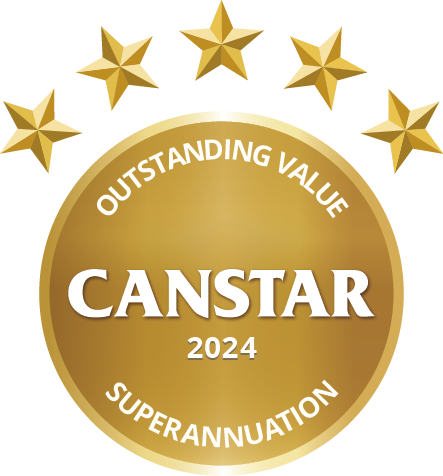The proxy voting season for many global equity markets was from March to June this year, so it’s an opportune time to reflect on overall global trends. At Vision Super, we actively vote our shareholdings as we believe that good corporate governance creates a strong base that can enable a company to generate long-term investment value for shareholders.
Proxy voting is where a vote is cast on behalf of a shareholder at a company’s annual, special or extraordinary meeting. At these meetings, we have the right to vote our shares on a variety of issues such as the board of directors, compensation, financial metrics, and shareholder resolutions. Voting allows shareholders to influence a company’s corporate governance and social responsibility activities. Listed companies usually file a proxy statement with the various exchanges such as the Securities and Exchange Commission (SEC) in the US. These are used by shareholders to help cast votes on their proxy ballots. The board of directors usually provides recommendations to vote for or against each proposal on the proxy ballot.
Australia
Australian companies were able to hold their annual meetings physically, virtually or a hybrid this season. Shareholders and proxy advisers have raised concerns that virtual meetings do not allow views to be appropriately considered.
‘Say on Climate’ resolutions were first introduced in the second half of 2020, with the objective to direct companies to structure and align their processes to the Paris-aligned transition path, and to have proper disclosures including climate-related targets. Advisory resolutions in 2022 were put at the Rio Tinto annual meeting (84% supported), Santos meeting (63% support), and Woodside, Australia’s largest independent oil and gas company, where the resolution only received 51% support – the lowest global support for a climate transition plan during the 2022 annual company meetings to date.
So far, support for directors has been in line with previous years, between 90-95% on average. Objections were directed towards executive remuneration during the period, specifically focusing on the Real Estate Investment Trusts sector, where significant retention awards were recommended with either no or inadequate performance hurdles.
The AGL Energy board withdrew its demerger proposal plan for the company, following a campaign led by Mike Cannon-Brookes and Grok. Concerns were raised that the demerger would not sufficiently support or accelerate decarbonisation to meet Paris-aligned goals in an orderly transition to net-zero, nor would it manage the risk of stranded assets. Consequently, the Chair will resign from the Board on appointment of a replacement independent Chair, and the Board and the current CEO agreed that the CEO will also step down but will continue to act in the role until a replacement is appointed.
US
In general, the number of Say on Climate resolutions has significantly dropped in the US, following a year of low support in 2021.
On the 18 of May 2022, legislation was introduced in the Senate to compel asset managers to make client voting choice available to individual investors in passive funds when the asset manager owns more than 1% of a company’s voting securities. This Bill has not been passed by Congress at the time of writing and the full extent of this change is yet to be seen.
Support for ‘Say on pay’ proposals has been in line with or slightly lower than previous years, with average support of 90.2% and several companies not receiving majority support at all with issues around short-term periods and no performance hurdles.
Key remuneration issues revolved around incentive programs/lowering targets following challenging business conditions, maximum or above target payouts where targets were lowered compared with last year, inadequate disclosure of outcomes, retention grants without performance conditions or additional compensation without adequate justification.
ESG metrics are increasingly being used in incentive compensation but formal disclosure is lacking. ESG-related shareholder resolutions are becoming more specific, with targets across Scope 1, 2 and 3 emissions being sought.
In 2022, 286 shareholder proposals were lodged. Of these, 30 related to environmental (with 6 passed; average support 37.6%), 107 to social (10 passed; average support 32.7%) and 149 to governance issues (28 passed; average support 37.4%).
For the first time, resolutions related to racial equity and civil rights audits, sexual harassment and gender pay equity attracted majority support.
There were also several new trends across both environmental and social proposals. On the environmental side, proposals requesting Scope 3 emissions reductions targets, policy alignment with the International Energy Agency’s Net Zero scenario, and discontinuance of financing to fossil fuel projects are gaining prominence.
Europe
Many of the governance and sustainability aspects important to investors across the globe are embedded in the EU law and therefore adhered to by companies as a matter of compliance (i.e. gender quotas, employee protection disclosures, etc.) In Germany, it is currently not possible to file a shareholder resolution, which is a matter of ongoing debate.
In Spain, companies must put their non-financial reports up for shareholder approval every year, while in Switzerland, sustainability reports will have to be put up for shareholder approval on an annual basis from 2023.
In the UK, Taskforce on Climate-Related Financial Disclosures (TCFD) became mandatory on 1 April 2022 for companies with 500 employees or more (listed and unlisted). It is unusual for a company to not have ESG metrics included in their remuneration framework. Over-commitment has been one of the most common issues for investors to vote against a director (more frequently than proxy advisers).
Our proxy voting decisions can be found online one business day after each company meeting here
This information is general advice that does not take into account your personal financial objectives, situation or needs. Before making a decision about Vision Super, you should think about your financial requirements and consider the relevant Product Disclosure Statement and Target Market Determination issued by Vision Super Pty Ltd ABN 50 082 924 561 AFSL 225054 at www.visionsuper.com.au




